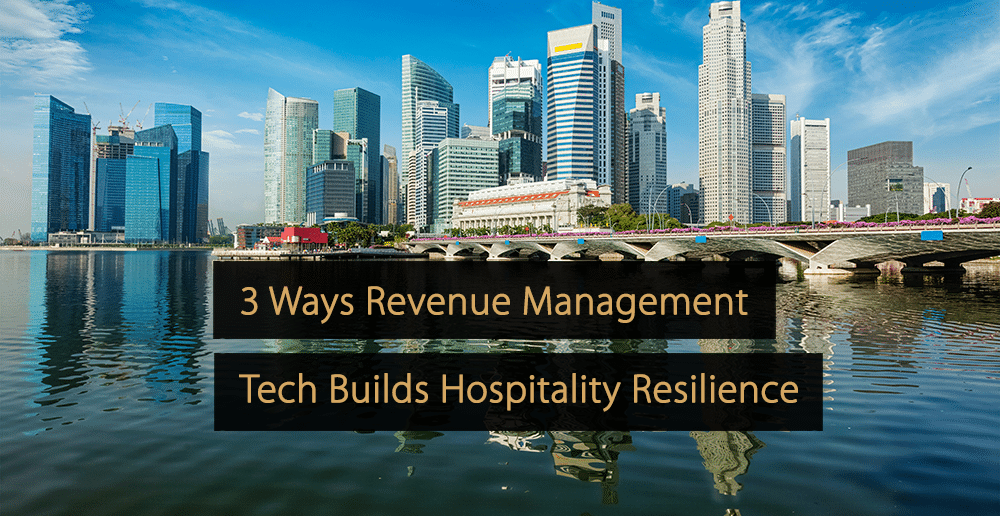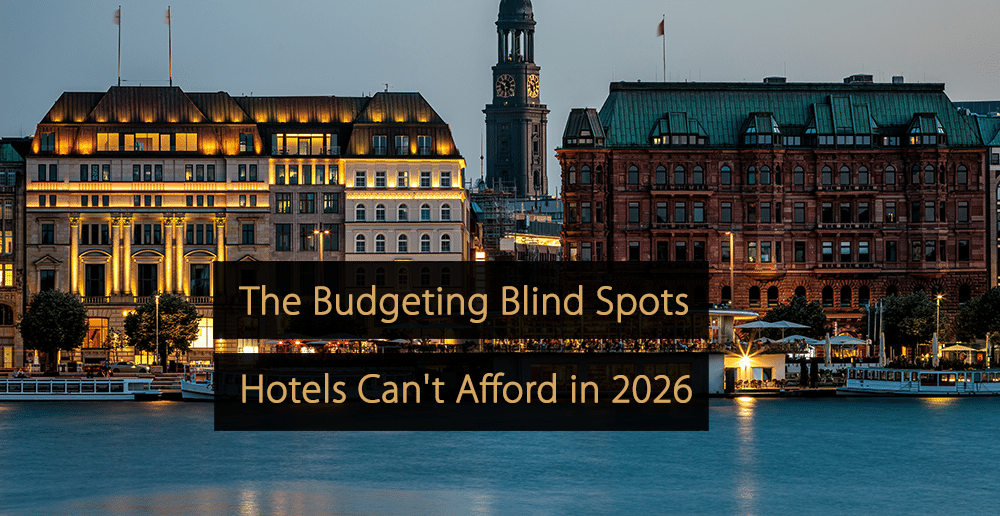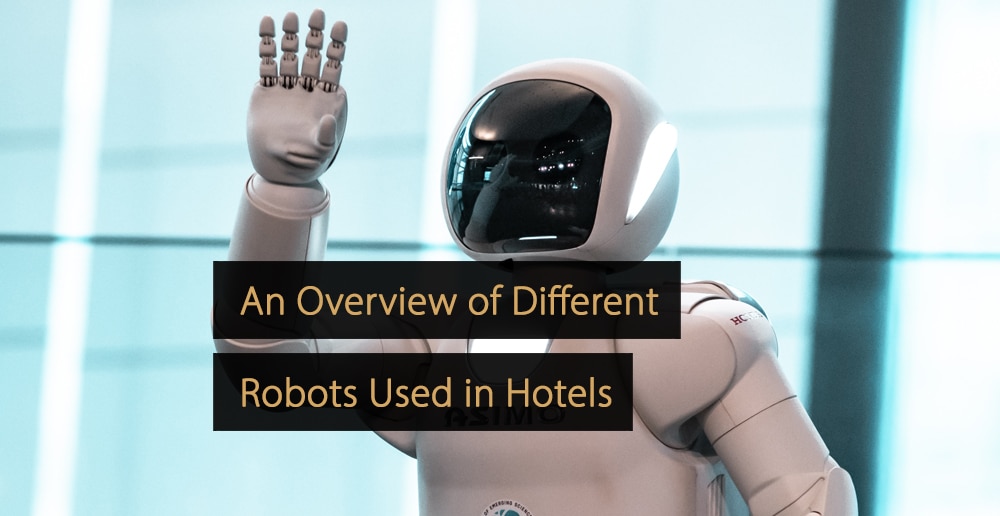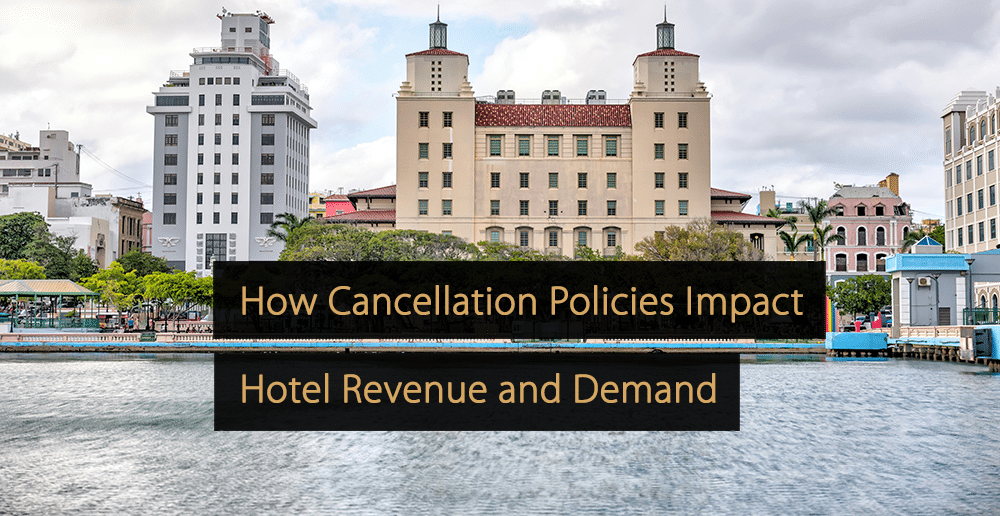The hospitality industry continues to evolve amid shifting guest expectations, global disruptions, and economic uncertainties. To stay competitive, hotels must embrace smarter systems and agile strategies that ensure long-term success. With the right tools in place, hospitality leaders can adapt faster, optimize performance, and create a more stable foundation for future growth in an ever-changing travel landscape.
In this article, you’ll learn how revenue management technology helps hotels strengthen operational efficiency, align commercial teams, and promote sustainability for lasting resilience.
How Revenue Management Technology Strengthens Hospitality Resilience
Like it or not, the hospitality industry is no stranger to persevering through disruption. From global events and shifting travel patterns to evolving guest expectations and economic uncertainty, resilience has arguably become the defining trait of successful hotels and resorts.
Navigating the choppy waters of change, uncertainty, and complexity is no small task—but it’s a challenge that can be greatly eased with the help of well-integrated revenue management technology.
A modern RMS is at the forefront of this transformation, helping hospitality providers not only survive but thrive in a dynamic marketplace. As organizations look ahead to the future, smarter technology and commercial alignment are at the heart of three key strategies for building resilience.
Key Strategies Where Revenue Management Technology Drives Hotel Resilience
Here are three strategies that show how revenue management technology helps hotels improve efficiency, strengthen teamwork, and build lasting resilience.
1. Driving Operational Efficiency and Strategic Agility
Modern hospitality operations are increasingly complex, with teams often challenged by fragmented systems, manual processes, and the constant pressure to do more with less. Without the right technology in place, these factors are a recipe for missed opportunities, frustrated employees, and short-sighted strategies.
Revenue management technology is changing the game by using integrated data to streamline workflows, simplify and enable the tactical execution of complex strategies, and transform how revenue teams spend their valuable time.
By consolidating or integrating tools and automating routine tasks, hotels can eliminate inefficiencies and empower staff to focus on higher-value activities. Integrated platforms provide a unified view of pricing, forecasting, and performance, enabling faster, more informed decisions. This operational clarity not only boosts profitability but also allows teams to respond quickly to market changes—whether it’s a sudden surge in demand or an unexpected downturn.
Hotels investing in automation and system integration are finding that efficiency is more than a cost-saving measure; it’s a strategic advantage that frees up resources and supports long-term growth.
2. Unifying Commercial Teams for Smarter Market Response
Resilience in hospitality is about more than weathering storms—it’s about anticipating and shaping demand. Revenue management technology is playing a key role in breaking down the silos between revenue management, sales, and marketing teams, fostering a more efficient, effective, and collaborative approach to driving commercial success.
With unified forecasting and shared data, commercial teams can align their strategies to capture demand spikes, optimize pricing, and target the most profitable guest segments. This cross-departmental approach ensures that marketing campaigns are timed to meet forecasted need periods, and sales efforts are focused where they’ll have the greatest impact.
Rather than chasing volume, hotels are prioritizing profitability by attracting the right guests at the right time. The ability to pivot quickly in response to market signals—whether driven by major events, geopolitical shifts, or changing consumer confidence—gives organizations a competitive edge and helps them maximize revenue even in unpredictable conditions.
3. Building Sustainability and Workforce Resilience
While revenue management technology isn’t always the first investment associated with sustainability, its potential impact on both ecological and financial resilience should not be overlooked.
Revenue management platforms help hotels forecast demand more accurately, allowing for smarter resource planning. For example, by predicting occupancy patterns, hotels can better align staffing schedules, energy usage, and purchasing decisions with guest demand—reducing waste and avoiding overconsumption. This means fewer empty rooms being unnecessarily heated or cooled, and more precise ordering of supplies, which directly supports environmental goals.
By optimizing pricing and inventory decisions, revenue management technology strengthens the bottom line—giving hotels the financial flexibility to invest in new sustainability initiatives, from energy-efficient upgrades to guest-facing green programs. Automation and data-driven decisions help protect margins, even in challenging market conditions, ensuring that sustainability efforts are not sidelined by budget constraints.
Technology also plays a vital role in workforce stability. With ongoing talent shortages and rising guest expectations, hotels use forecasting tools to optimize staffing—reducing burnout, improving retention, and creating environments where employees can thrive. Investments in upskilling, cross-training, and automation further strengthen operations and enhance the guest experience.
By embedding sustainability and workforce stability into their core strategies—and leveraging revenue management technology to support these goals—hotels are future-proofing their businesses and positioning themselves to adapt to whatever challenges lie ahead.
The Path to Resilient Hospitality in 2026 and Beyond
The hospitality sector is entering a new era—one defined by rapid change, heightened expectations, and exciting opportunities to innovate. Revenue management technology is more than a tool; it’s a catalyst for building resilient organizations that deliver exceptional experiences, drive profitability, and lead the way in a fast-evolving landscape.
As you plan for the future, consider how integrated systems, unified commercial strategies, and a commitment to sustainability can help your organization not just respond to change, but actively shape it. The journey ahead is dynamic, but with the right technology and a spirit of collaboration, the future of hospitality is bright.
Future Forecast: Hospitality Tech Predictions for 2026
Hotel commercial teams must move faster and collaborate more closely, even as strategies grow more complex and resources remain limited.
This guide shares expert insights on the technology trends shaping hospitality’s commercial future.
Click here to download the report “Hospitality Tech Predictions”.
By applying these strategies and embracing advanced revenue management technology, hotels can strengthen resilience, improve performance, and ensure sustainable growth. Continue learning, adapting, and using data-driven insights to stay competitive and achieve long-term success in the evolving hospitality landscape.
More Tips to Grow Your Business
Revfine.com is the leading knowledge platform for the hospitality and travel industry. Professionals use our insights, strategies, and actionable tips to get inspired, optimize revenue, innovate processes, and improve customer experience.Explore expert advice on management, marketing, revenue management, operations, software, and technology in our dedicated Hotel, Hospitality, and Travel & Tourism categories.








Leave A Comment